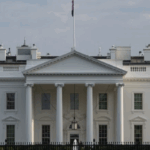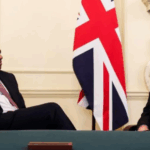U.S. retail giant Target has lowered its full-year expectations after reporting a sharp 5.7% drop in sales for the three months to May. The company cited a “highly challenging environment” marked by fresh trade tariffs and public pushback over recent corporate policy changes.
The Minneapolis-based retailer has faced mounting pressure on multiple fronts, including the impact of import tariffs and backlash stemming from its decision to scale back its diversity, equity, and inclusion (DEI) targets.
Chief Executive Brian Cornell said the company is weighing its options in response to the rising cost of imports, especially from China, but warned that raising prices would be a “last resort.” Instead, he said Target would look to increase domestic sourcing to mitigate exposure to international trade tensions.
“That is going to play a very important role,” Cornell said, referring to efforts to reduce reliance on Chinese imports. Currently, about 30% of Target’s store-brand merchandise is sourced from China — a marked decrease from 60% in 2017. Nonetheless, analysts warn that the retailer remains vulnerable to shifting tariff policies, especially on non-essential goods.
Target’s sales slump contrasts sharply with the performance of rival Walmart, which benefits from a higher proportion of essential items like groceries in its sales mix. Target, on the other hand, is more exposed to discretionary spending, with key categories including home goods, apparel, and beauty products — sectors that have taken a hit amid economic uncertainty.
The company’s results come as the U.S. reimposes higher tariffs on a range of imported goods under President Donald Trump’s renewed push to bolster domestic manufacturing. The administration has framed the tariffs as a strategy to bring back jobs and support American industry. However, economists warn that the measures risk driving up consumer prices and hurting businesses reliant on global supply chains.
While a recent agreement between the U.S. and China has eased some trade tensions, import taxes on Chinese goods remain elevated at 30%, significantly higher than pre-trade war levels. For companies like Target, the prolonged tariff regime poses significant cost challenges.
Looking ahead, Target said it remains focused on navigating the complex trading landscape while responding to consumer demand and operational challenges. However, with falling sales and a difficult retail climate, the company has acknowledged that its outlook for 2025 is now more cautious.

















